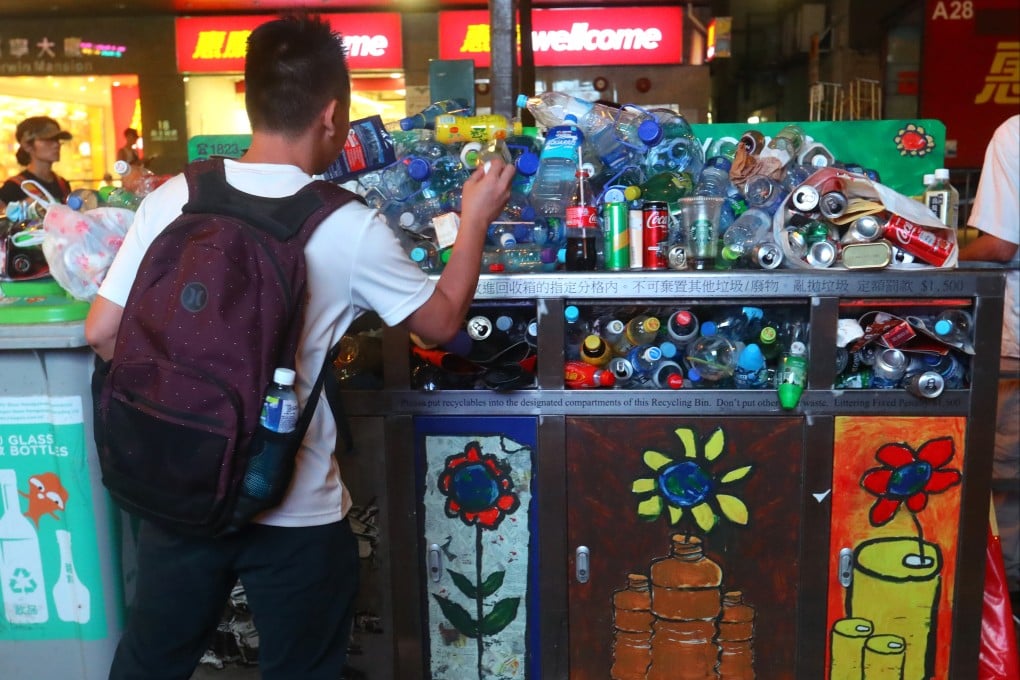Advertisement
Letters | Taking recycling bins off Hong Kong’s streets sends wrong message
- Readers discuss the government’s decision to phase out roadside recycling bins, and the need to reconsider human consumption of animals
Reading Time:3 minutes
Why you can trust SCMP
2

Feel strongly about these letters, or any other aspects of the news? Share your views by emailing us your Letter to the Editor at [email protected] or filling in this Google form. Submissions should not exceed 400 words, and must include your full name and address, plus a phone number for verification.
Have you noticed the streets have been emptier recently? Well, the Environmental Protection Department has been quietly removing recycling bins from roadsides since June last year. It said it decided to remove the bins due to the poorer quality of material discarded and that it expected demand for kerbside recycling to decline as the Green@Community network gains ground.
While it is true that the roadside recycling bins are often misused, the reasons cited for removing them seemed like mere excuses given that the decision came soon after – if not in direct response to – the Ombudsman’s report on the management and effectiveness of the bins.
Advertisement
The report, published in April last year, did not call for a total scrapping of the recycling bins, however, only recommending clearer labels on what can be recycled and more transparency with the recycling data. The EPD’s reaction seems akin to throwing the baby out with the bathwater.
To be fair, though, it is hard not to be somewhat sympathetic when some Hongkongers see any container on the street as a convenient waste receptacle. Already I have seen non-glass recyclables being put into the roadside glass recycling bins.
Advertisement
But replacing more than 1,000 bins with 43 recycling stores and 130 mobile spots is hardly the way to go. The Green@Community network has much smaller coverage number-wise. Not all mobile spots are open at times that are convenient to most working adults.
The management of stores being contracted to various organisations also calls into question the long-term sustainability and knowledge retention of the network.
Advertisement
Select Voice
Select Speed
1.00x